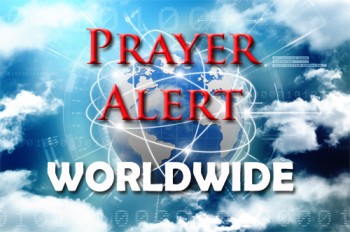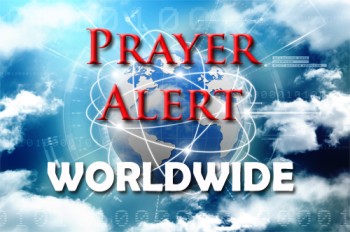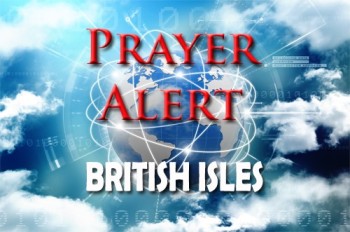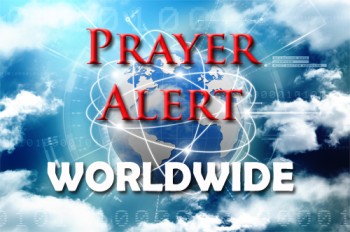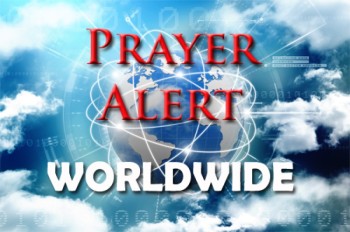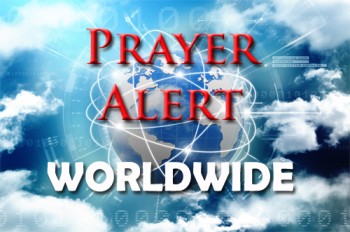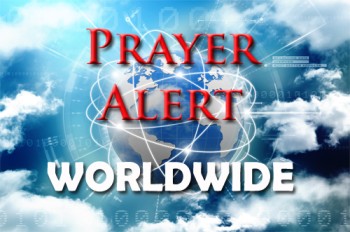Displaying items by tag: Middle East
Israel / Gaza: attack on hospital condemned, famine officially declared, Pope’s plea
A deadly double strike on a hospital in Gaza has drawn sharp international condemnation. At least twenty people were killed, including five journalists and four health workers, when two consecutive strikes targeted the facility. The UN, describing the attack as ‘unacceptable’, called for those responsible to face justice. The IDF claimed the strikes were aimed at a Hamas-operated camera, but did not explain why a second strike was deemed necessary. There have been escalating protests inside Israel, with families of hostages and supporters demanding that Netanyahu agree to a ceasefire deal. The humanitarian crisis is deepening across Gaza: a UN-backed body has confirmed that a famine is taking place in Gaza city (a claim described as an ‘outright lie’ by Israel), and most of the territory’s population faces dire shortages of shelter, food, and medical care after months of war. Pope Leo XIV has joined the Latin and Greek Orthodox patriarchs of Jerusalem in a powerful plea for an immediate end to the war: see
Gaza: Hamas agrees to Qatar’s latest ceasefire proposal
Qatar has emphasized the urgent need for a ceasefire in Gaza, highlighting what it called a ‘positive response’ from Hamas to a new truce proposal. The plan, similar to an earlier US-brokered offer previously accepted by Israel, calls for a sixty-day pause in fighting, the release of some hostages in exchange for hundreds of Palestinian prisoners, expanded humanitarian aid, and negotiations toward a lasting settlement. Israel, however, is maintaining its stance that the war will continue until Hamas disarms and all hostages are freed. Foreign minister Israel Katz says that fear of Israel’s plans to occupy Gaza city is bringing Hamas back to the negotiating table. Meanwhile, conditions in Gaza remain dire. The UN has warned that the minimal aid entering Gaza is far from sufficient, with hunger-related deaths increasing. Officials blame Israeli restrictions on humanitarian supplies, warning of imminent famine. Breaking news: Israel is calling up 60,000 reservists in preparation for its planned invasion of Gaza. See
Israel: plans to build 3,000 houses in contested West Bank settlement area
Far-right finance minister Bezalel Smotrich has announced plans to approve over 3,000 housing units in the contested E1 settlement area between Jerusalem and Maale Adumim in the occupied West Bank. Long frozen due to international opposition, the project would physically separate East Jerusalem from the rest of the West Bank, undermining prospects for a contiguous Palestinian state. Smotrich declared the plan would ‘bury the idea’ of such a state, describing it as an assertion of Israeli sovereignty. Settlement expansion is considered illegal under international law, though Israel disputes this. The announcement comes amid growing international momentum toward recognising Palestinian statehood, which Israel opposes. Critics warn that the move deepens annexation, fuels conflict, and blocks the path to peace. Smotrich, together with national security minister Itamar Ben-Gvir, was sanctioned by the UK in June over ‘repeated incitements of violence against Palestinian communities’ in the occupied West Bank: see
No 10 declines to say if Palestine will be recognised
Downing Street has refused to confirm whether the UK will proceed with recognising Palestinian statehood in September if Hamas remains in power or hostages are not released. Keir Starmer previously stated that recognition depends on Israel meeting certain conditions, including a ceasefire, increased humanitarian aid to Gaza, halting annexation of West Bank land, and engaging in a peace process. However, critics argue the move could reward Hamas, especially in light of comments by its leader Ghazi Hamad claiming recognition is a 'fruit' of the 7 October attacks. Families of British hostages and some Labour MPs have voiced strong objections, insisting recognition should be tied to the hostages’ release. Despite calling Hamas 'pariahs' with no future role in Gaza, Starmer’s spokesperson said no single party will hold veto power over the decision. The Government insists its focus remains on increasing aid, ending suffering in Gaza, and promoting a two-state peace solution. A final decision is expected at the UN General Assembly in September. See
Gaza: is Netanyahu contemplating a full occupation?
After nearly two years of war in Gaza, Benjamin Netanyahu is reportedly preparing to escalate the conflict further by ordering a full military occupation of the territory, despite international outrage, domestic opposition, and dissent within Israel's own military. Critics allege that his push is politically motivated, aimed at preserving his fragile coalition and delaying his corruption trial. Analysts question whether the Israeli army, already strained and suffering from troop shortages and internal resistance, can sustain such an operation. Over 600 ex-military officials have urged Donald Trump to intervene diplomatically, stating that in their professional opinion, Hamas no longer poses a strategic threat. Despite widespread destruction, the goal of rescuing all the Israeli captives has not been achieved. Public support continues to decline, and many accuse Netanyahu of prioritising political survival over peace or national security. Further escalation could deepen the humanitarian catastrophe and international isolation.
Syria: pastor and family massacred by terrorists, at least 20 dead
Pastor Khalid Mezher, leader of the Good Shepherd Evangelical Church in Suwayda, Syria, was murdered alongside around 20 members of his extended family in what church leaders are calling a targeted massacre. A convert from the Druze faith, Mezher was known for his bold Christian witness in a region torn by conflict. His murder occurred amid escalating violence between Bedouin fighters and Druze militias, with over 250 reported dead in one week. Suwayda has been under siege for 10 days with no food, water, or electricity. Church sources say Mezher was 'killed for his faith,' and many believers remain missing or cut off. Despite a U.S.-brokered ceasefire, shelling continues. Christian leaders across Syria have condemned the killings and appealed for urgent international aid. Government forces have shifted roles in the conflict, but humanitarian access remains limited. Mezher’s martyrdom has shaken the remnant Christian community in southern Syria, as calls for global prayer and intervention grow. The church in Suwayda now stands scattered, its future uncertain. See
Israel bombs Syrian forces attacking a Druze area, then Damascus
Deadly violence has erupted in Suweida between Druze militias and Bedouin tribes, resulting in at least two hundred deaths, including children and civilians. The fighting, which began after the abduction of a Druze merchant, quickly escalated, prompting Syria's interim government to send troops into the previously autonomous Druze region. Israel launched airstrikes against these troops, claiming they were targeting the Druze, with whom Israel shares strong ties. The strikes drew international criticism and further inflamed tensions. Despite a ceasefire declared by Syria’s defence minister, reports emerged of government forces bombing Suweida, executing Druze civilians and looting homes. A Druze spiritual leader initially called for cooperation with authorities, but later urged resistance. Syria accused Israel of full responsibility for the violence, while the USA urged Israel to halt its strikes. The Israeli military has already carried out hundreds of strikes across Syria to destroy the country's military assets since the fall of the Assad regime. Breaking news: Israel has now bombed Damascus, targeting the presidential palace and the ministry of defence building. See
Hope for Christians In a hugely dangerous place
In Iran, one of the world’s most dangerous places to be a Christian, the underground church is growing remarkably. Amid an oppressive regime enforcing Twelver Ja’afari Shia Islam, over one million believers now worship in secret, making Iran home to the fastest-growing Christian population globally. These followers meet discreetly in house churches of no more than fifteen people, risking arrest, loss of livelihood, and severe punishment. Stories like Azam’s highlight this courage: shunned for pregnancy outside marriage, she found hope in Christ through a Christian woman’s witness, discovering the One who bears shame and offers new life. Despite surveillance, threats, and societal rejection, Iranian Christians embody a faith purified through suffering, reminding believers worldwide that Christianity is not defined by comfort or buildings but by a willingness to risk all for Jesus. Their example challenges Western believers to strip away distractions and embrace genuine, sacrificial faith. Ministries like ICM partner with the underground church, discreetly distributing Scripture via micro SD cards, ensuring the Gospel continues to spread even in the darkest circumstances.
Iran raises death toll, fails to guarantee safety for nuclear inspectors
The official Iranian death toll from the recent twelve-day war with Israel has been raised to 935, including 38 children and 132 women, based on new forensic data. Iranian officials accused Israel of war crimes and vowed to present evidence to international bodies. The government also criticised Donald Trump’s rhetoric about potential further strikes and sanctions, dismissing his remarks as psychological manipulation rather than genuine diplomacy. Meanwhile, tensions have risen over the International Atomic Energy Agency (IAEA). Officials have condemned its ‘double standards’, and have said that its boss Rafael Grossi is not welcome in Iran. They have also refused to guarantee the safety of nuclear inspectors. Western nations have condemned the threats against Grossi and urged Iran to maintain cooperation with the IAEA.
Gaza: Trump says Israel has agreed to a ceasefire
Donald Trump has announced that Israel has agreed to the ‘necessary conditions’ for a sixty-day ceasefire in Gaza, pending Hamas’s approval. While the details remain vague, Trump said that the USA, along with Qatari and Egyptian mediators, will work toward ending the war. Hamas stated it is open to a deal if it guarantees an end to hostilities, the withdrawal of Israeli forces, and humanitarian relief. Israel’s key demand remains the release of most, if not all hostages held in Gaza. Hamas representatives in Cairo are reportedly negotiating, though insiders describe the talks as stagnant. Disagreements persist over the absence of a guarantee for permanent peace and continued military presence in Gaza. Meanwhile, the conflict continues: Israel has ordered evacuations in northern Gaza ahead of increased military action, and at least twenty Palestinians were killed in an Israeli air strike on a seafront café on 30 June. A previous attempt at a ceasefire failed in March. Trump's upcoming meeting with Netanyahu may prove decisive.
